Developing Talent for a Collaborative World
Festo’s sales teams transitioned remarkably well to the remote customer interaction environment, Bruch said, and despite the lack of personal contact with customers, virtual meetings allowed more team members to participate, bettering the odds of winning business.
The sales team at Switzerland-based Baumer Group, a leading global supplier of sensors, has found no substitute for personal contact when building rapport with clients, said Chief Marketing Officer Karsten Just. “If you have a personal meeting, it's usually easier to get access to those guys,” he said.
“With customers, there's that personal element, that relationship building,” agreed CJ Logistics CIO Greg Sheen. “That's more prolific in Asia. Relationships are key to any sort of business dealings, not just sales. Building that trust model before you even get to the business discussion is critical across pretty much everything that we do.”
Baumer trained its teams to ensure they had the skills required to be effective virtually, and experienced some benefits going virtual, he acknowledged, noting he can easily monitor how meetings are conducted.
Baumer technicians typically visit customers to decide which sensor is right for each job, a challenge amid the travel restrictions of 2020, he noted. The workaround meant conducting site visits virtually, which wasn’t ideal, he said. Notwithstanding the challenges, demand for the company’s sensors is only growing, Just noted. “When I look at products, there is no big change. That's going in the direction of Industry 4.0: more data supply out of the sensors to the machine systems or cloud systems. That is accelerating, for sure.”
Los Angeles-based OSI systems performed well over the past year, despite the uncertainty clouding the global economy and lacklustre demand in certain divisions, said Senior Vice President and Chief Human Resources Officer Glenn Grindstaff.
The bulk of OSI’s office staff went remote, and 30% to 40% of the HR team will remain so henceforth, Grindstaff said. “In a traditional manufacturing and engineering environment, where you have some old school thinking, working remote was a foreign concept. Now, it is accepted,” he said. “All in all, it's been a positive experience.”
Remote employees at OSI have been a lot more productive, said Grindstaff, dispelling the notion that working from home is a euphemism for slacking. “That's not been the case at all. They've been more productive, and instead of working eight, nine hours a day, they're working 12-to-13 hours a day. We've actually been having to encourage employees to take time off, to shut things down so that they have a little bit of balance in their life and stay healthy.”
Avoided travel is a huge benefit, said Alan Fam, Regional CEO for Asia Pacific at Germany-based Kuka Robotics. Person-to-person relationship building has suffered somewhat, he agreed, but people are making better use of technology to communicate and collaborate virtually.
Converging Technologies Drives Demand for New Skills
From a talent acquisition standpoint, being able to work remotely, at least part-time, is going to be an attraction and a retention tool, said Grindstaff. “This is here to stay, and it's good, because it reduces the carbon footprint and reduces traffic on the freeways,” he said.
“The old days of nine-to-five jobs is the past, said Fam. Passionate people will be successful, Covid, or no Covid, and those who embrace new technological tools to communicate and collaborate will be in high demand. “Gone are the days where top-down strategy works; they have to buy into the concepts, buy into the value they can bring to the organization, and hopefully to the society as well.”
Kuka is adapting well, Fam said, “in the way we work with each other, both within the region and with headquarters, and even with customers”. The company’s clients have been requesting virtual site visits rather than physical visits, and simulation software has become more important to the company’s day-to-day operations, he said.
Tectra’s clients too have come to expect virtual support, Riley said. “They are looking for a lot of predictive maintenance that is integrated into the IT systems, and this is going to drive the convergence of technologies and a completely new skill set within our industry.”
Organizations need better forecasting to adapt to new localization and supply chain needs, whether intake forecasting, revenue forecasting or delivery forecasting, which creates a demand for talent with that skillset, said Fam.
Talent shortages associated with prolonged travel restrictions have also encouraged companies to groom talent and developing competencies they need locally in their core markets, Chong noted.
Leadership Skills for the Hybrid Workplace
The emergence of a global health threat hasn’t prompted the need for new leadership skills, but rather, “skills you probably need a little bit more in that new environment”, said Schellerer. Communication skills, for one, are critical, he said, alongside the capacity to live with ambiguity and remain flexible and open to change.
The key soft skill is collaboration, along with communication, said Chong. Today’s business leaders must also demonstrate initiative, be driven and self-motivated to continue their own professional development in a do-it-yourself way, said Chong, while on-boarding talent that helps the organization adapt to new ways of learning, working, communicating and collaborating.
Being a good listener is critical, Just said, to be able to share information throughout an organization and listen to find the best solution and the fastest implantation process. The ability to conduct teambuilding, mentorship and coaching activities virtually in an interactive way that gets key messages across is another important leadership skill in the current environment, added Fam.
The biggest challenge is going to be coping with hybrid work environments, Bruch said. Leaders need to be authentic and empathetic to get to know their team members, understand their motivation and purpose, while encouraging self-directed actions and still do performance management, she said. People actually integrate work life better now being able to work from everywhere, but building trust is the key, Bruch added.
Everything Festo has achieved internally over the past year is aligned with what the company is focusing on within its digital and cultural transformation, Bruch said, including agile approaches, self-organized teams, less dependence on a hierarchical chain of command, speed and performance. “We saw a lot of positives, which will help us to be even better in the future. The challenge right now is to really maintain that spirit.”



